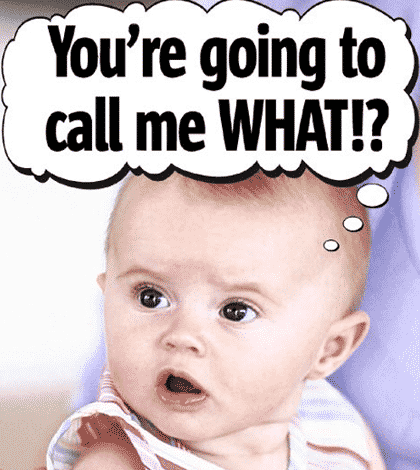









About 45,000 different surnames originate
in England and many have a history behind
them.
Villages were quite small before the Norman
Conquest of Britain in 1066, and people had no hereditary
surnames. They were individually known by a personal name or nickname
but after foreign lords were substituted on most of the land in
England, the names they brought with them spread over time among the
conquered population and this resulted in surnames from French
nouns such as Gullifer, Gulliford in 1654 (Bradsley Old French).
With increasing number, it was
found necessary to identify
people. Surnames evolved -
this lead to names such as John the butcher, William the short, Mary
of the wood, or they acquired a name was taken from their farm,
hamlet or even county or features on the landscape - some surnames
reflected a trade or occupation such as in
Chapman (shopkeeper), Goldsmith,
Nailor, Belringer,
Hornblower, Fiddler,
Brewer, Piper, Baker
etc. A nickname given also became a hereditary
surname such as Fox, from the crafty animal, or
White, perhaps from the hair or complexion are
examples.
The geography of a district often required
specific industries such as stone-masonry, thatching or fishing
and Mason, Thatcher and
Fisher and the name given reflected this.
12th- to 14th-century building skills are represented by
Wright, Slater, Leadbeater, Carpenter and Plummer. With no real brick
industry during this period the surname Brick or Bricker does not exist -
Brickman derives from the Norse 'brigg' meaning bridge. Then, over
time some names became corrupted and their
original meaning was later not si easily seen -
eg Thacker, Thackery,
Thackwray.
Those in the arts were given Painter, Fiddler, Harper, Piper and Player and from the church came Pope, Bishop, Monk and Abbott. but most names originated from nicknames rather than actual occupations some originated from performers in the Mystery or other religious plays. Names also were derived from plants and animals -
examples are Catt, Sparrow and Oak and
most come from appearance - colour, complexion or form - eg
Armstrong and Strongham,
Heavyside, Quickly,
Slowman, Smallman,
Fairfax and Blunt
(fair-haired).
Personal or moral qualities, led to names like
Good, Goodchild, Thoroughgood, Allgood, Toogood and ome - such as Puttock
(greedy) or Coe (jackdaw) show contempt or ridicule.
Baptismal or Christian names also become surnames - this was favoured in the south of England and in the western border counties and the practice was later copied by the Welsh. In the northern half of England and lowland Scotland a son often acquired his surname by adding an "s" or 'son" on to his father's name - giving the surname example - Williams or Williamson The surname Guildford (Gilford) has its
origin from the French - Gyldeford abt 880, Gulafra
(ref: Domesday Book) Geldeford, Guldeford abt 1131, Geldeford abt 1130,
1156, 1190. The town of Guildford is on the Wey where the river cuts through the long ridge called the Hog's Back, a tributary of the river Thames. It was formerly called Guildown (Geldedon abt 1190, Gildedon abt 1251, Mons Guldedonye abt 1282. The name Guildford is believed to be a "ford"
or crossing where golden flowers grew. "gylde is a derivative of gold
and of the same meaning as golde for marigold. The word Guildford is
thought likely to mean "marsh marigold'' however the relation of
Guildown is not clear but might have meant a "ridge where
golden flowers grew".
 In New Zealand, among our extended familythe spelling of the surname Guilford is not consistant. In his diary, this is explained by Henry John Guilford: "I wrote many letters to relations living in England and Wales, including my paternal Grandfather from whom I received many letters in reply and he wrote his name oftener GUILDFORD than GUILFORD. My brother James for many years signed himself GILFORD. My father and eldest brother wrote it GUILFORD - and I have always written it GUILDFORD." The several grandchildren who recorded BDM dates with such beautiful hand-writing in the Guilford Family Bible, did not realise this! Our early generations had no
opportunity to read and write and they could not spell their
name - records had to be recorded for them by another person.
Even if the spelling was memorized, a literate person recording the
information may not have asked. Genealogy researchers rely on
written records - church, civil, wills and census records,
all written by a non-family member -- a clergyman, census enumerator,
town or county clerk. The recorders may have thought they knew best how to
spell a name and did not even bother to ask. The illiterate farmer would
not presume to correct an educated minister.
Church records list the date on which a couple makes the announcement that they intend to marry. These are called marriage banns - marriage intentions, which were non-religious public announcements of the couple's intention to marry. It is possible to misinterpret the dates of marriage banns and marriage intentions as the actual wedding date. Church and cemetery records contain the date of the funeral and he unwary can confuse the burial date with the date of death. Reading wills can be a genealogist's biggest challenge to decipher handwritten and faded ink scripts and spelling of words can be found spelt differently within the same document Images and data used in this site copyright -
© |